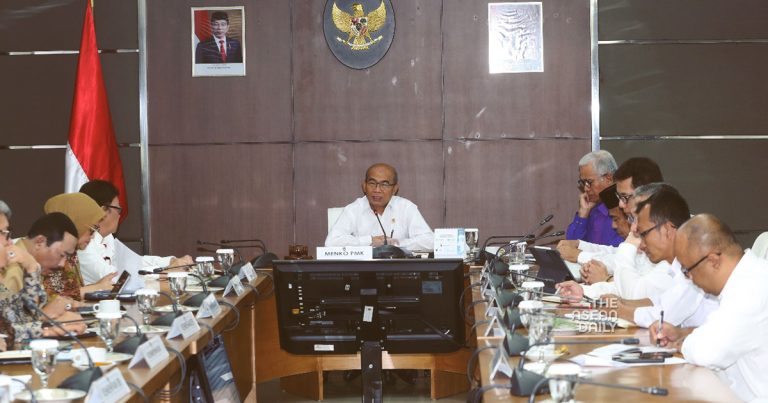15-8-2023 (JAKARTA) Coordinating Minister for Human Development and Culture, Muhadjir Effendy, has issued a plea for citizens to prioritize wearing masks during their daily activities as a preventive measure against the escalating threat of acute respiratory infections caused by the deteriorating air quality in Jakarta.
Speaking from Jakarta on Monday, Effendy highlighted the pressing concern and urged individuals, particularly those experiencing discomfort, to don protective face coverings. He underscored that the air quality in Indonesia, especially within the national capital, has plunged to a deeply concerning level. Notably, the concentration of air pollutants has reached such proportions that the cityscape’s visibility from his office has been noticeably affected.
Minister Effendy further divulged that progress is underway in the development of the new capital, Nusantara (IKN). He remarked, “Relocating the capital city to IKN serves as a strategic solution to this matter.”
Touching upon the transition towards electric vehicles, he offered insights that this shift might not present an immediate panacea for the air pollution predicament. “We need substantial time for electric vehicles to emerge as the primary solution. Presently, they serve as alternative transportation,” he elucidated.
Previously, President Joko Widodo advocated for the implementation of a hybrid working model as part of an initiative to combat air pollution in the expansive Jakarta-Bogor-Depok-Tangerang-Bekasi (Jabodetabek) region. The air quality in this area had deteriorated to alarming levels in the preceding week, prompting the President’s response.
Addressing the issue during a restricted meeting in Jakarta, President Widodo emphasized the urgency of the situation and discussed the hybrid working approach, incorporating both office-based and remote work options. He also mentioned considerations regarding working hours, proposing alternatives such as 7-5 or 2-5.
President Widodo highlighted the critical state of Jakarta’s air quality and directed relevant ministries and governmental bodies to intervene immediately. Among the intervention strategies, he highlighted weather engineering to stimulate rainfall over Jabodetabek and the enforcement of regulations aimed at expediting emission control measures, particularly within this affected region.
Moreover, the President advocated for an increase in the number of green open spaces (RTH) within the area, urging stakeholders to allocate the necessary budget for executing this directive. In the medium term, the government aims to implement policies that reduce dependency on fossil fuel-based vehicles while promoting mass transit options.




